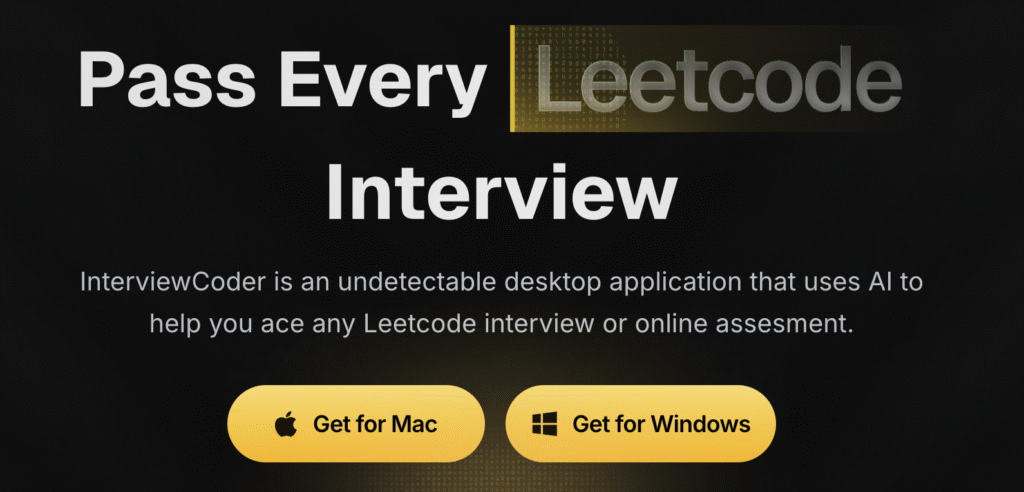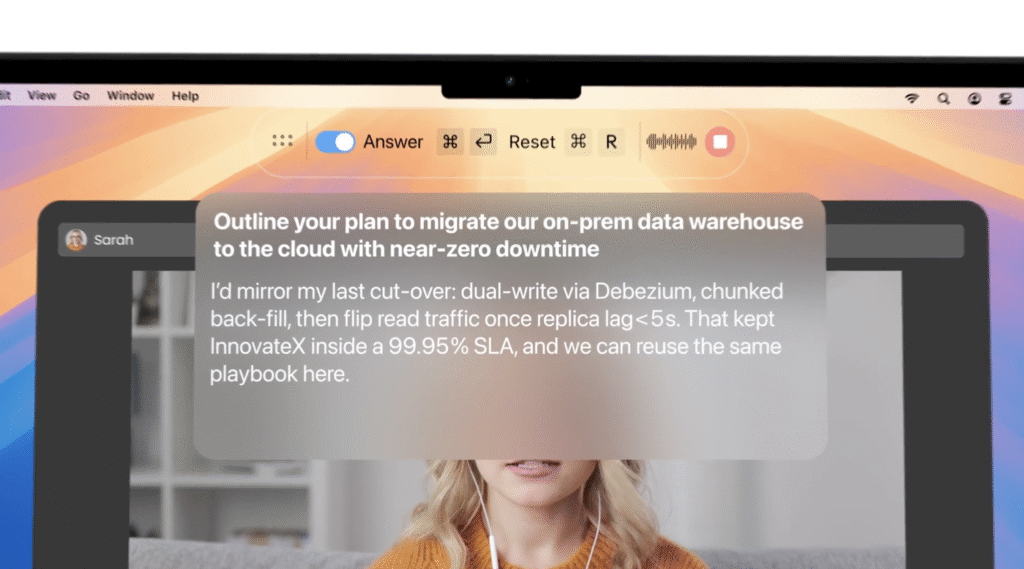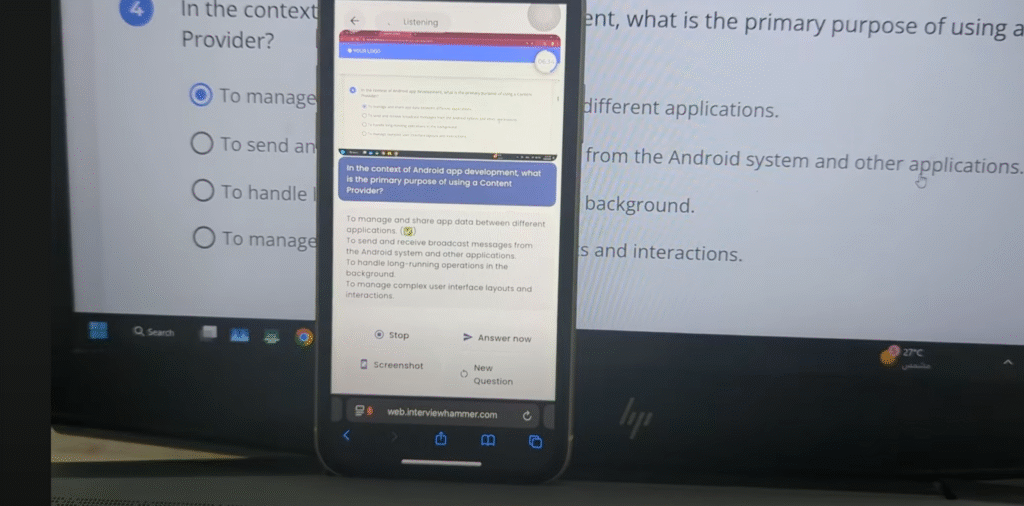The rise of AI tools has revolutionized the recruitment process, making it faster and more efficient for candidates to apply for jobs. Tools powered by AI are increasingly being used for tasks such as writing personalized motivation letters, improving CVs, completing take-home assignments, and even handling coding challenges. While these advancements streamline many processes, they also introduce a level of complexity to recruitment practices, leading to some intriguing—and concerning—developments.
AI-Enhanced Job Applications and Screening
AI is already playing a central role in job applications. It can generate tailored motivation letters based on the job description, suggesting the right tone, language, and relevant skills to match a specific role. This level of personalization allows job seekers to present their best selves on paper, but it also raises questions about authenticity. After all, if an AI can craft a compelling motivation letter, how do we know the candidate is genuinely interested or even capable?
Similarly, AI can help refine CVs to better match job descriptions by adjusting keywords, rephrasing responsibilities, and optimizing format. The result is a polished application that appeals to both the AI-powered Applicant Tracking Systems (ATS) and hiring managers. But this, too, begs the question: are we hiring candidates for their skills or for their ability to use AI to improve their chances?
AI in Technical and Coding Interviews
Beyond the application stage, AI has begun to play a role in remote technical interviews, particularly coding assessments. For instance, a candidate might use an AI tool to generate answers or provide hints when they get stuck. In some cases, AI tools can even analyze the problem and suggest optimized code, allowing candidates to present technically accurate—and potentially impressive—solutions, not only in home assignments, but even in real-time coding tests.

However, the line between legitimate skill and AI-assisted performance is starting to blur. What happens when an engineer, seemingly passing technical interviews with flying colors, is relying on AI to get through the tough coding exercises?
The Interview Process: A Black Mirror Episode?
With AI’s growing influence on recruitment, interviews are becoming less of a test of real-world knowledge and more of a race against AI-generated responses. AI tools listen to the audio of the video call and suggest real-time answers, remaining invisible even while sharing your screen.
In fact, some argue that today’s interviews have morphed into a “Black Mirror” episode. It’s getting harder to distinguish whether a candidate is responding to questions with genuine thought and experience or simply reading off an AI-generated reply on their screen.
This phenomenon has already been observed in numerous real-world scenarios, as we at primehammer have experienced firsthand. Interviews that were once designed to test knowledge, problem-solving abilities, and communication skills are now subject to scrutiny over whether AI tools are being used in the background.


In one recent case, a Columbia University student was suspended after developing an AI-assisted tool to cheat on job interviews for software engineers. The tool transcribes meetings, suggests responses, and even proposes follow-up questions, all while remaining invisible to the interviewer.
After the suspension, the 21-year-old and his co-founder got seed funding and built their start-up, Cluely, with the tool’s functions extended to “cheat on everything”. As this technology continues to improve, it’s only a matter of time before the tool becomes even harder to detect.
The AI-Assisted Candidate: Red Flags and Patterns
From our own experience conducting interviews, we’ve noticed some tell-tale signs that a candidate might be receiving AI-generated assistance. These include:
- Unusual Typing Patterns: Candidates may spend long periods of time typing or appearing to “search” for answers. This may be due to the AI tool generating responses.
- Eyes Shifting: When candidates keep looking at one area of the screen (such as a corner), it often indicates they’re reading an answer generated by AI, even though they share their screen with the interviewer.
- Long Pauses: A long pause followed by an overly articulate response is a red flag. AI tools sometimes take time to generate answers, leading to awkward silences that candidates try to cover up with filler phrases like, “That’s a great question, let me think about that.”
- Monotone Replies: When the candidate responds in a monotone or overly formal way, as if reading from a script, it’s often an indication that they’re not explaining the answer in their own words.
- Repetition: If a candidate repeats the question before answering, it could be a tactic used to buy time while the AI processes the query.
- Delayed Responses to Follow-Up Questions: When a question requires a prompt response, candidates may hesitate or appear confused, as if the AI is struggling to keep up.
While these signs don’t guarantee AI assistance, they do suggest that candidates are relying on external tools to enhance their performance.
The Ethics of AI-Assisted Interviews
This leads to the most important question: are AI-assisted interviews a form of cheating, or are they simply a reflection of the reality we live in? Some argue that if everyone is using AI tools to prepare for interviews, then no one is truly cheating, or that if they are going to use AI tools in day-to-day tasks, then they should be allowed to use them during interviews.
This perspective suggests that we need to rethink what interviews are meant to assess. Are they about testing how well a candidate can think on their feet and come up with creative solutions, or is it about evaluating how well they can read AI-generated responses?
Rethinking Interview Design
The rise of AI brings a critical opportunity to rethink the entire interview process. After all, if an AI can pass your interview, then the interview is likely poorly designed. The objective of an interview should be clear: are we interested in a candidate’s ability to think critically and apply knowledge, or are we simply rewarding their skill at using AI tools?
It’s becoming clear that traditional interview formats might no longer be sufficient. Questions that once tested candidates’ knowledge may now be too easily gamed by AI systems. Instead, hiring managers should shift the focus toward evaluating a candidate’s thought process and problem-solving abilities. After all, it’s not the answer that matters, but how the answer is arrived at.
Conclusion: Embrace the Future with Caution
As we continue to explore the role of AI in recruitment, one thing is certain: AI is here to stay. It’s already shaping how we apply for jobs, how we prepare for interviews, and even how we evaluate technical skills. However, we must be careful not to lose sight of authenticity in the process.
AI-generated motivation letters and polished CVs may be helpful tools, but they should not overshadow the need for genuine experience and skill. Interviewers must be vigilant and ask the right questions, probing candidates’ thought processes and looking beyond surface-level responses.
Ultimately, the future of recruitment lies in a delicate balance. AI can help streamline the hiring process, but it should never replace the need for genuine human connection, thoughtful problem-solving, and authentic dialogue. In a world where technology continues to evolve, it’s up to us to ensure that our hiring practices evolve with it—ensuring fairness and accuracy without sacrificing authenticity.
In the end, hiring the right person will always come down to more than just the answers they provide. It’s about understanding their personality, their thought process, potential for growth, and other characteristics, depending on the role requirements. If AI can pass your interview, it’s time to rethink what you’re truly assessing.